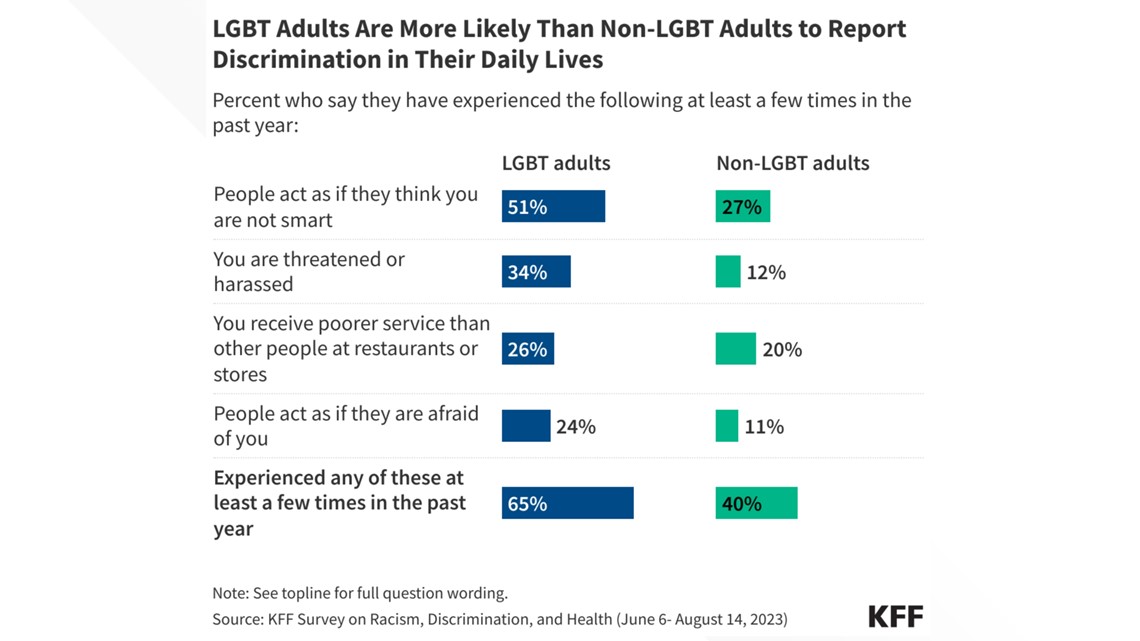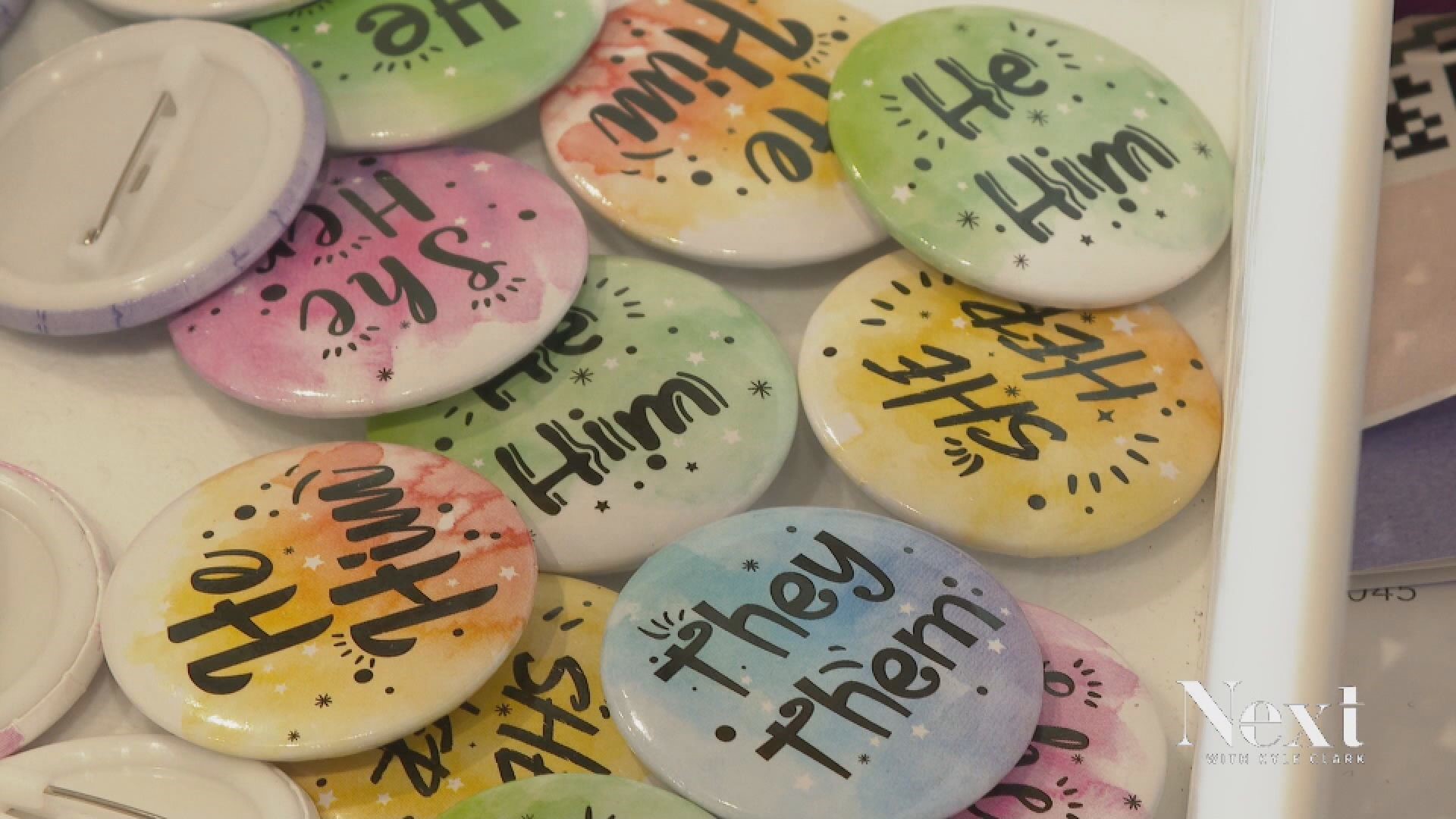AURORA, Colo. — Health care disparities within the LGBTQ+ community are being highlighted by new research, even in states known for being inclusive, like Colorado.
According to a recent study released by the Kaiser Family Foundation (KFF), one in every three LGBTQ adults report experiencing unfair or disrespectful treatment by a healthcare provider. 24% of those LGBTQ individuals report negative experiences had an impact on their health.
"Unfortunately, I’m not surprised. I mean, we’ve known that discrimination is happening in every sector and healthcare is not immune to it," Carey Candrian, an associate professor and researcher at the University of Colorado Anschutz, said. "These places they think they’re immune to this, and they’re not. And Colorado is not an exception."
Candrian knows how detrimental it is for LGBTQ folks to not feel seen in healthcare. She's spent much of her career pushing for more research like KFF's survey. Candrian's photo exhibit sharing the fears and experiences older individuals in the LGBTQ community had in their health care system was featured in venues across Colorado.
"The way we frame our questions, the way we ask our questions can shut people down," she explained. "It's awful."
Candrian is currently in the middle of a five-year grant to develop a way to improve care for older LGBTQ adults in hospice. She hopes to develop a training to better equip health care workers and expand health forms to acknowledge gender identity and its role within the person's care.
"We don't have data, great data, of the LGBT community including hospice, and so, really, part of this grant is showing how critical knowing this information knowing who someone is, who they love, what they want, what they don't want," she explained.


"Our intake forms don’t leave a lot of space for us to disclose this information. Medical professionals don’t have a lot of training, I mean they have hours throughout their entire medical curriculum on caring for LGBT people, so its these massive effects that are really impacting the way a huge population is being cared for," Candrian said.
According to KFF, the healthcare disparity is even greater for LGBTQ people of color: 24% of Black LGBTQ adults and 15% of Hispanic LGBTQ adults say they were treated unfairly by a healthcare provider. That's compared to 4% of White LGBTQ adults.
Candrian says Colorado is not immune to these issues and to some of the statistics KFF has reported. She hopes the more reports that highlight the disparities, the more likely solutions are to follow.
"My goal with my research has been hopefully to put a face to a lot of these numbers. When you see one out of three, you see your sister, your aunt, you see your coworker, so you’re more inclined to do something," she explained. "I hope these reports don't allow people to continuing to admire the problem and really ask them to do better."
SUGGESTED VIDEOS: Next with Kyle Clark

